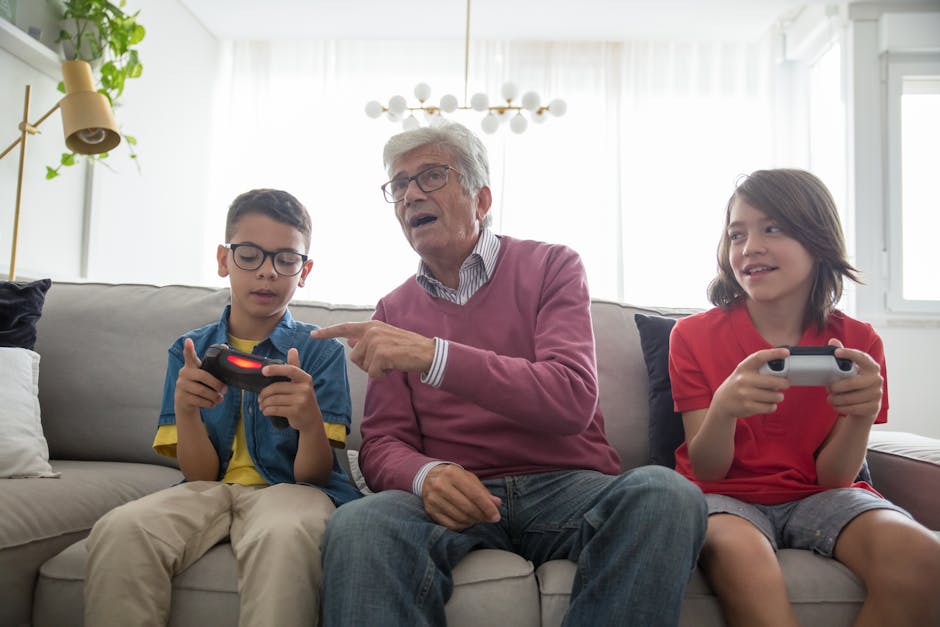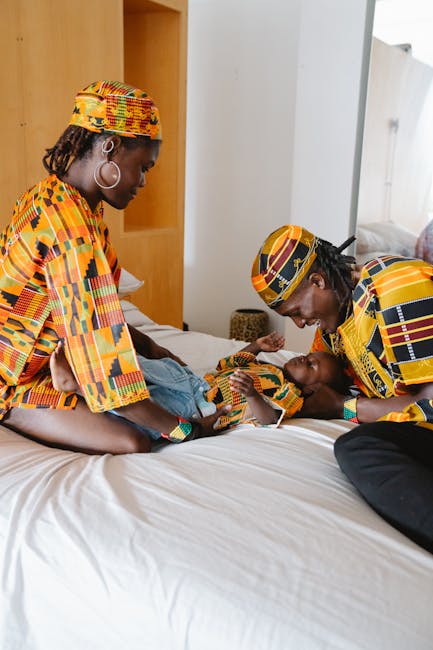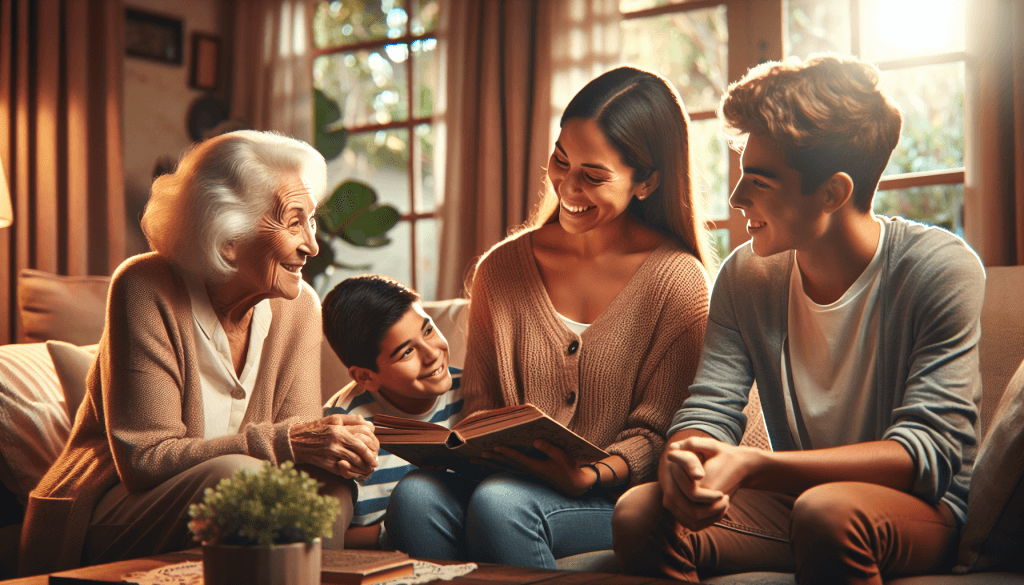What Are The Mental Health Benefits Of Intergenerational Connections?
Intergenerational connections—relationships between people of different age groups—offer a treasure trove of mental health benefits. These bonds can reduce loneliness, foster emotional growth, and even strengthen community ties. But why does bridging the gap between generations have such a profound impact on mental well-being? Stick around, and you’ll discover how these connections can transform lives, one conversation at a time.
Key Takeaways
- Intergenerational relationships reduce loneliness and promote emotional stability.
- Sharing knowledge and experiences enhances cognitive engagement and fosters lifelong learning.
- These connections build stronger communities and combat social isolation.
- They encourage personal growth, broaden perspectives, and strengthen identity.
Introduction to Intergenerational Connections
Definition of Intergenerational Connections
At its core, an intergenerational connection is a meaningful relationship between individuals from different age groups. Think of a grandparent teaching their grandchild how to bake cookies or a teenager helping a senior navigate a smartphone. These interactions are more than just exchanges of skills—they’re bridges that unite generations.
Importance of Intergenerational Relationships in Society
In today’s fast-paced world, where technology often replaces face-to-face interaction, fostering relationships between generations is more critical than ever. These bonds help preserve traditions, pass down wisdom, and create a sense of belonging. They remind us that every generation has something valuable to offer.
Overview of Mental Health Benefits
From reducing loneliness in older adults to teaching empathy to younger generations, the mental health benefits of intergenerational connections are vast. These relationships nurture emotional well-being, stimulate the mind, and strengthen communities.

Emotional Support and Mental Well-Being
Emotional Support for Older Adults
Reducing Feelings of Loneliness and Isolation
For many seniors, loneliness can feel like an unwelcome houseguest that overstays its welcome. Intergenerational relationships act as a remedy, offering companionship and a sense of purpose. A simple chat with a younger family member can brighten their day and reduce feelings of isolation.
Enhancing Emotional Stability and Resilience
Older adults often find emotional stability through these connections. Sharing their life stories or offering advice can remind them of their value and resilience. It’s like watering a plant—the more they engage, the more they thrive.
Emotional Benefits for Younger Generations
Developing Empathy and Understanding
For younger individuals, spending time with older generations fosters empathy. Hearing about past struggles and triumphs helps them understand life’s complexities and appreciate different perspectives.
Building Stronger Familial Bonds
Intergenerational connections also strengthen family ties. Whether it’s a grandparent teaching a child to knit or a teenager helping with technology, these moments create lasting memories and deepen relationships.

Sense of Purpose and Mental Stimulation
Sharing Practical Knowledge and Life Experiences
Enhancing Cognitive Engagement for Older Adults
When seniors share their wisdom, it keeps their minds sharp. Teaching a younger person how to garden or recounting historical events stimulates cognitive function and keeps their brains active.
Providing Guidance and Mentorship to Younger Generations
For younger individuals, these interactions are like having a personal guidebook to life. They gain valuable insights and mentorship that can shape their decisions and character.
Encouraging Lifelong Learning
Promoting Curiosity and Adaptability
Intergenerational relationships encourage curiosity. A child might ask, “What was life like before the internet?” while a senior might wonder, “How does this app work?” This mutual curiosity fosters adaptability and a willingness to learn.
Strengthening Problem-Solving Skills
When generations collaborate, they often tackle challenges together. Whether it’s solving a crossword puzzle or fixing a leaky faucet, these activities enhance problem-solving skills for both parties.

Building Community and Reducing Isolation
Fostering a Sense of Belonging
Strengthening Community Ties Through Shared Activities
Community programs that bring generations together—like storytelling events or volunteer projects—create a sense of belonging. These activities remind everyone that they’re part of something bigger.
Encouraging Collaboration Across Generations
Collaboration between age groups fosters mutual respect and understanding. It’s like a symphony where each instrument, regardless of its age, contributes to the harmony.
Combating Social Isolation
Creating Support Networks
Intergenerational connections act as a safety net. They create support networks that individuals can rely on during tough times, reducing feelings of isolation.
Promoting Inclusivity and Diversity
These relationships also promote inclusivity. By interacting with people from different age groups, individuals learn to appreciate diversity and embrace differences.

Personal Growth and Perspective
Learning from Different Generational Viewpoints
Broadening Perspectives and Understanding
Listening to stories from another generation is like opening a window to a different world. It broadens perspectives and fosters a deeper understanding of life’s nuances.
Encouraging Mutual Respect and Acceptance
These interactions teach mutual respect. Younger generations learn to value the wisdom of their elders, while older individuals appreciate the fresh ideas of youth.
Facilitating Emotional Growth
Developing Patience and Adaptability
Interacting with different age groups requires patience and adaptability. Whether it’s explaining a concept or learning a new skill, these moments foster emotional growth.
Enhancing Self-Awareness
These connections also enhance self-awareness. They encourage individuals to reflect on their own experiences and how they relate to others.
Strengthening Identity and Emotional Resilience
Preserving Family Traditions and Cultural Heritage
Reinforcing a Sense of Identity
Sharing family traditions and cultural practices strengthens identity. It’s like passing down a torch that lights the way for future generations.
Passing Down Values and Stories
Through storytelling, older generations pass down values and lessons that shape the character of younger individuals.
Building Emotional Resilience
Strengthening Intergenerational Bonds During Challenges
During tough times, intergenerational bonds act as a source of strength. They remind individuals that they’re not alone and that challenges can be overcome together.
Providing a Foundation for Coping Mechanisms
These relationships also provide coping mechanisms. Learning how previous generations handled adversity can inspire resilience in younger individuals.

Conclusion
Recap of Mental Health Benefits of Intergenerational Connections
Intergenerational connections are a powerful tool for mental well-being. They reduce loneliness, foster emotional growth, and build stronger communities.
Encouragement to Foster Intergenerational Relationships
Whether it’s volunteering at a senior center or spending time with family, fostering these relationships is worth the effort. They enrich lives and create lasting memories.
Final Thoughts on the Importance of These Connections for Mental Well-Being
In a world that often feels divided, intergenerational connections remind us of our shared humanity. They’re a testament to the idea that we’re stronger together, no matter our age.
For more insights on fostering meaningful relationships, check out this guide on promoting social connections.
Additionally, learn about the role of social connections in mental health and explore strategies for improving mental health in elderly populations.
Let’s build bridges, not walls, and watch how these connections transform lives.
FAQ: Discover the Mental Health Benefits of Intergenerational Connections
What are intergenerational connections?
Intergenerational connections refer to meaningful relationships and interactions between people of different age groups, such as children, young adults, and older adults. These connections often occur within families, communities, or structured programs and foster mutual understanding and support across generations.
How do intergenerational connections improve mental health?
Intergenerational connections enhance mental health by reducing feelings of loneliness, fostering a sense of purpose, and promoting emotional well-being. For older adults, these relationships can combat isolation, while younger individuals benefit from mentorship, wisdom, and emotional support.
Can intergenerational relationships reduce stress and anxiety?
Yes, engaging in intergenerational relationships can reduce stress and anxiety. Sharing experiences, gaining perspective, and receiving emotional support from different age groups can create a calming and reassuring environment, helping individuals cope with life’s challenges more effectively.
What role do intergenerational connections play in combating loneliness?
Intergenerational connections provide companionship and meaningful interactions, which are key to combating loneliness. For older adults, spending time with younger generations can rekindle joy and purpose, while younger individuals benefit from the wisdom and care of their elders.
How do intergenerational connections foster empathy and understanding?
These connections encourage individuals to see the world from different perspectives, fostering empathy and understanding. By learning about each other’s experiences and challenges, people of different generations can build stronger emotional bonds and mutual respect.
Are there cognitive benefits to intergenerational connections?
Yes, intergenerational connections can stimulate cognitive function, especially in older adults. Activities like storytelling, teaching, or learning new skills together can keep the mind active and engaged, benefiting both parties involved.
What are some examples of intergenerational activities that promote mental health?
Examples include shared hobbies like gardening, cooking, or crafting, storytelling sessions, volunteering together, or participating in community events. These activities create opportunities for bonding, learning, and mutual support, which positively impact mental health.
How can families encourage intergenerational connections?
Families can encourage intergenerational connections by creating opportunities for shared activities, celebrating traditions together, and fostering open communication. Regular family gatherings, mentorship programs, or even virtual meetups can help bridge generational gaps.
Do intergenerational connections benefit children and young adults too?
Absolutely! Children and young adults gain valuable life lessons, emotional support, and a sense of belonging through intergenerational connections. These relationships can also help them develop social skills, resilience, and a deeper appreciation for diversity in perspectives.
How can communities promote intergenerational connections for mental health benefits?
Communities can promote intergenerational connections by organizing programs like mentorship initiatives, intergenerational workshops, or volunteer opportunities. Creating spaces where people of all ages can interact and collaborate fosters a sense of community and enhances mental well-being for everyone involved.



